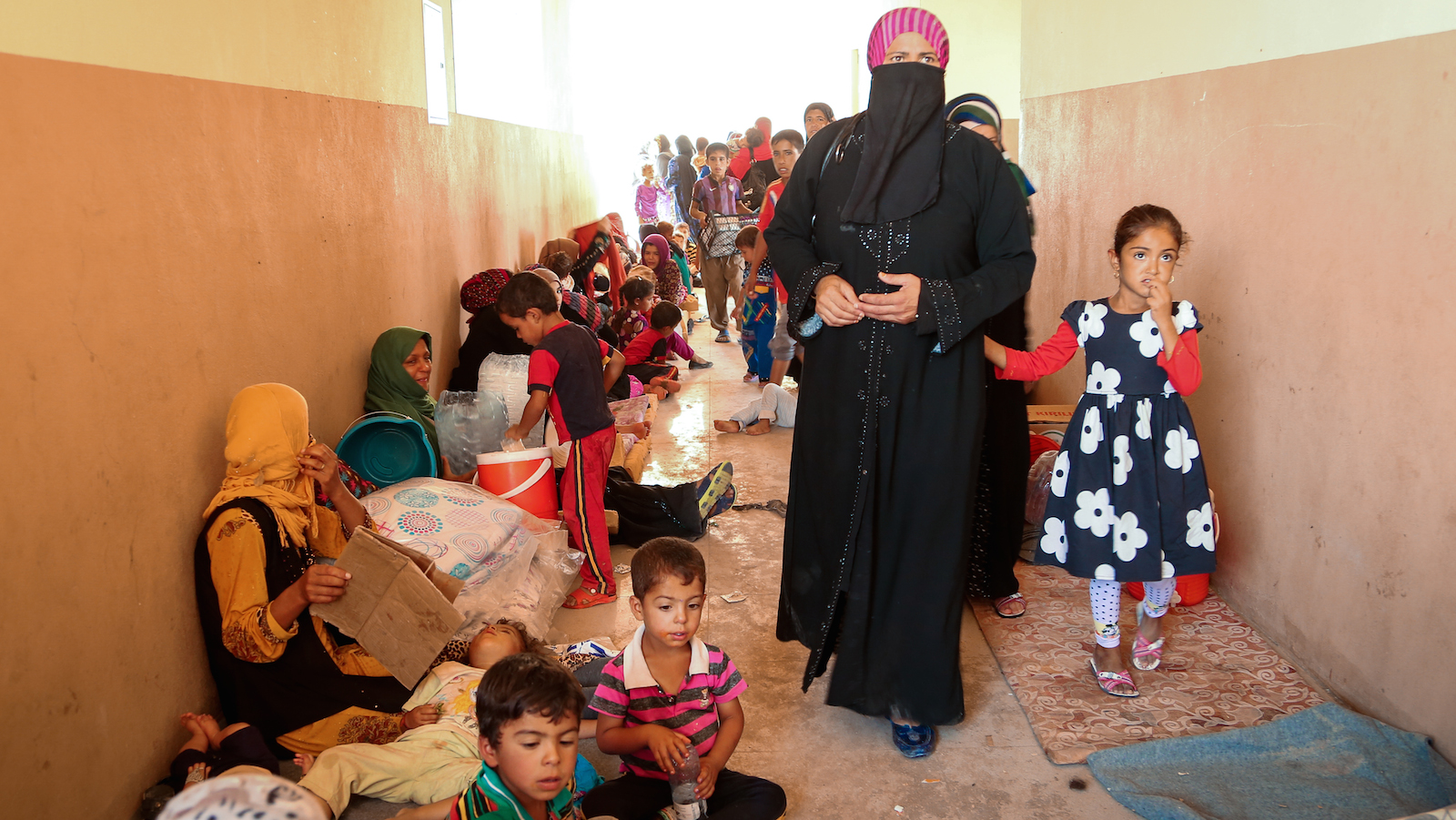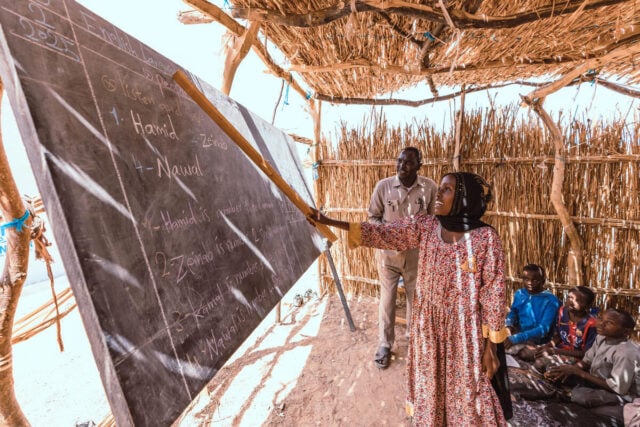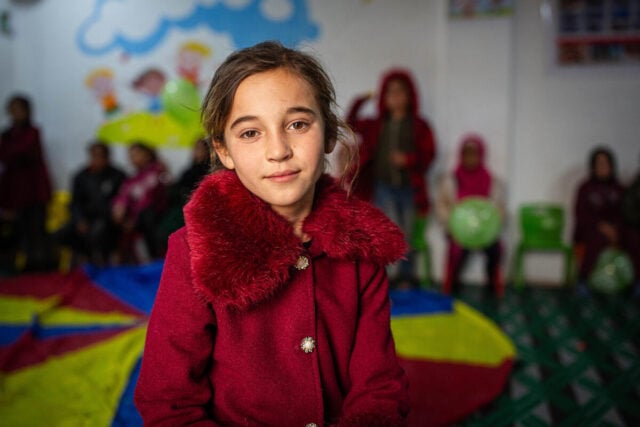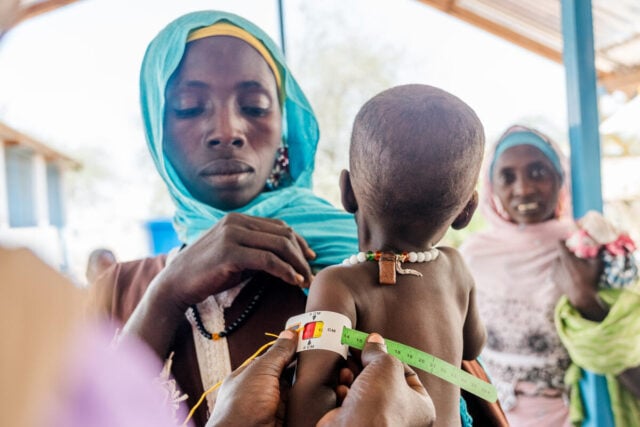When World Vision staff members met Hada (name changed to protect privacy) and heard her story in August, she and four of her children were housed in a transition center at Debaga, a camp for families displaced by the Iraq conflict. They were waiting to be reunited with her husband, who was in a separate facility.
As the fight accelerates to retake Mosul in Iraq’s northern Nineveh governorate, hundreds of thousands of Iraqis — maybe even a million — are expected to flee from the area like Hada’s family has done.
‘We lived like animals’
We used to live in Baqirta and then lived in Shergat (between Mosul and Kirkuk).
We lived like animals under the armed groups. During Ramadan, after fasting, you need food; we had oil, cut up an onion, and ate it with bread. A kilo of tomatoes (2.3 pounds) was US$6, but even if you had the money, you couldn’t find tomatoes, there was little to buy. Rice was US$8 a kilo. The last month, the shops were closed because of the airstrikes.
My children haven’t been to school for two years. I was concerned that my sons would be taken to fight. There were lots of airstrikes, and there was not enough food, that’s why we left.
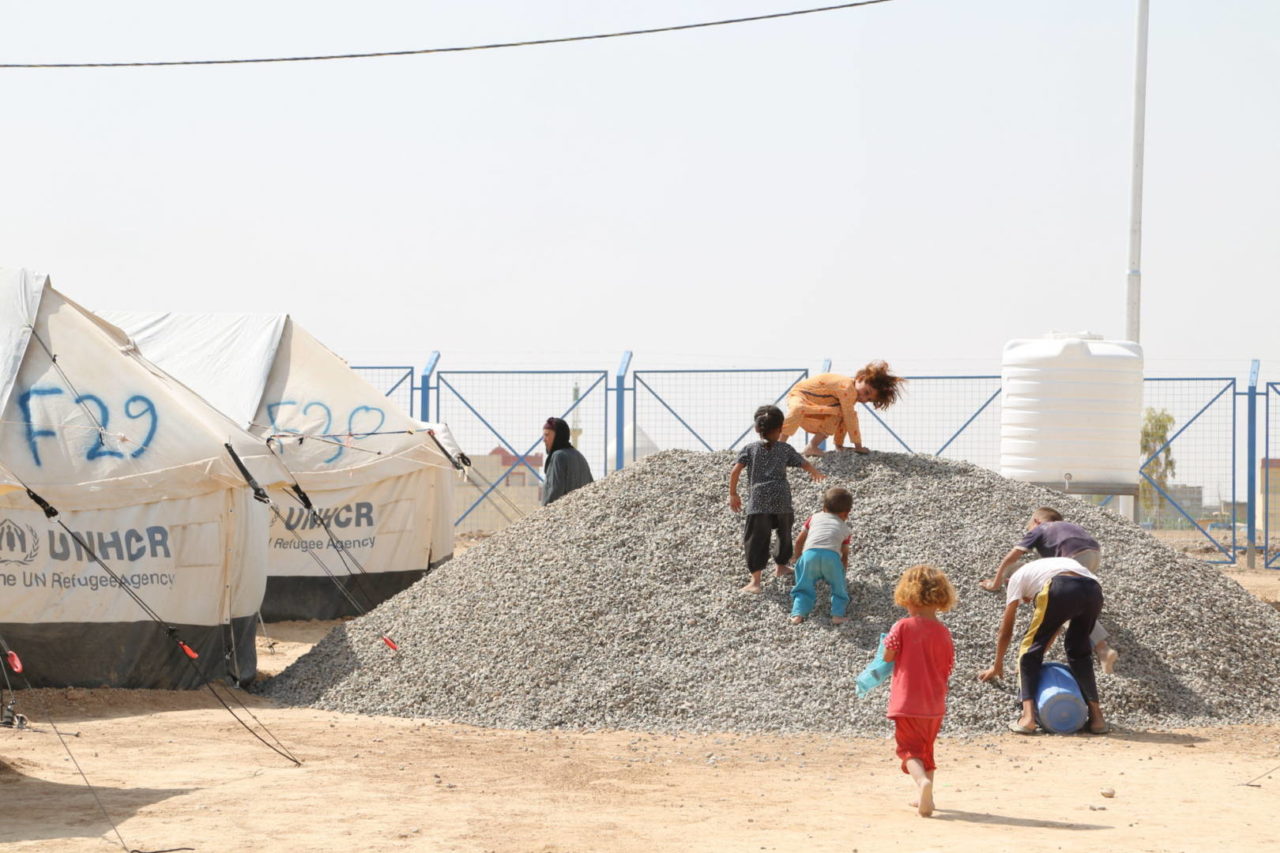
Running and hiding in fear
We were three families together. First we drove for one to two hours. It was dark, and we didn’t use headlights. Then we walked.
We were scared.We hid in the field in the plants because we were frightened of being caught. We traveled from 8 p.m. to 5 a.m. Sometimes we walked, and sometimes we ran.
We were so frightened when we were walking. We were warned about mine fields. We lost our way in some places. My husband walked 10 to 20 meters (32 to 65 feet) ahead to protect the children in case he stepped on a land mine.
I had a pain in my back while I was walking: I’m six months pregnant. I didn’t feel my baby move for the 10 hours we walked. I was worried something had happened, but then after we arrived I felt the baby move. I was happy when I felt the baby move.
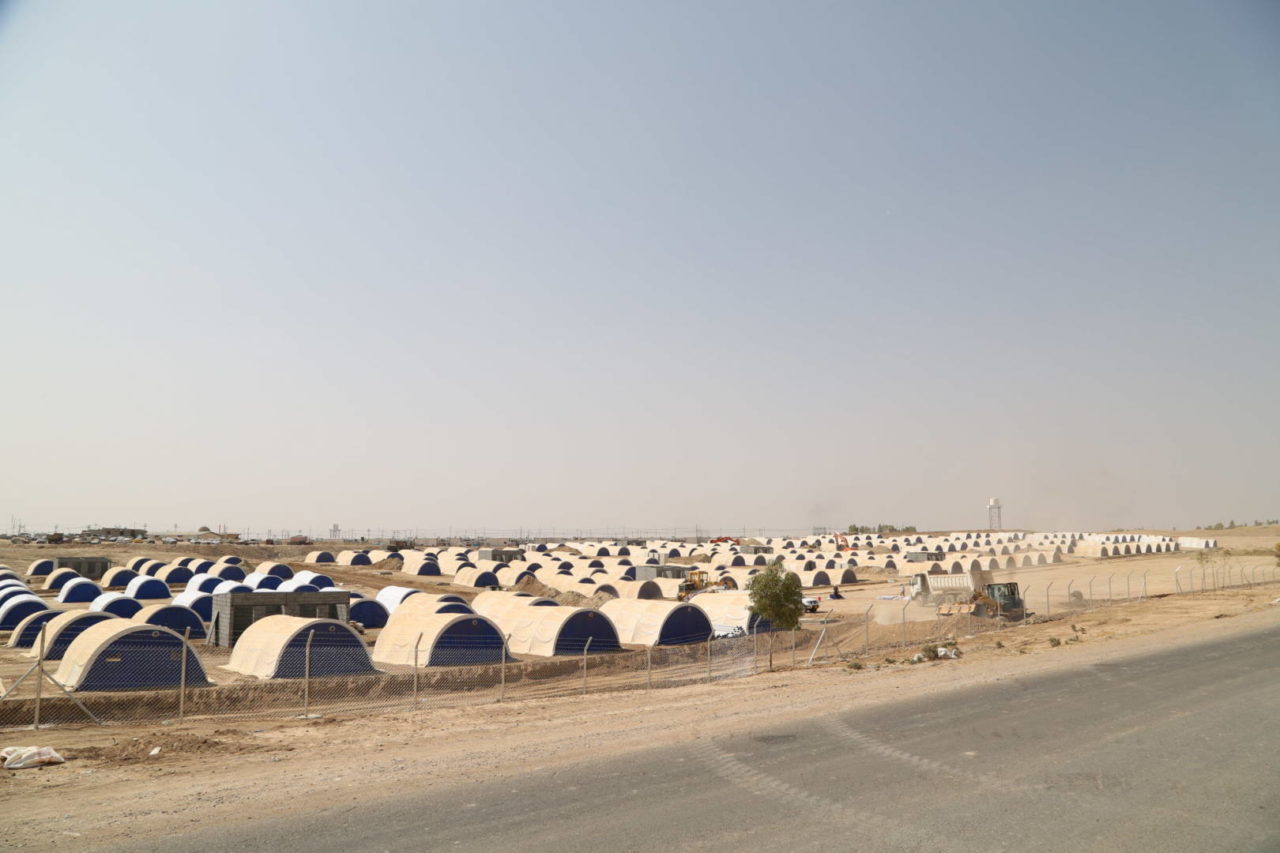
‘It’s hell here’
It was hell in Shergat, and it’s hell here.
We are sleeping on concrete. It burns my back; it’s very hard to sleep. We went to the shop to collect empty cartons to sleep on. We are so tired. We need a tent so we can rest.
We only get one meal per day; the quantity is not enough. We don’t have enough money for a cup of tea.
We left our car and our things. We hope our relatives will give us some money so maybe, at some stage, we can start a small business.
We don’t have IDs, so we spent longer in the reception center in the camp.
I want to return to my home in Baqirta. I lived there for 10 years. Our house was burned. I pray that I will go home. Even if there is one wall [left], we will have shade.”
